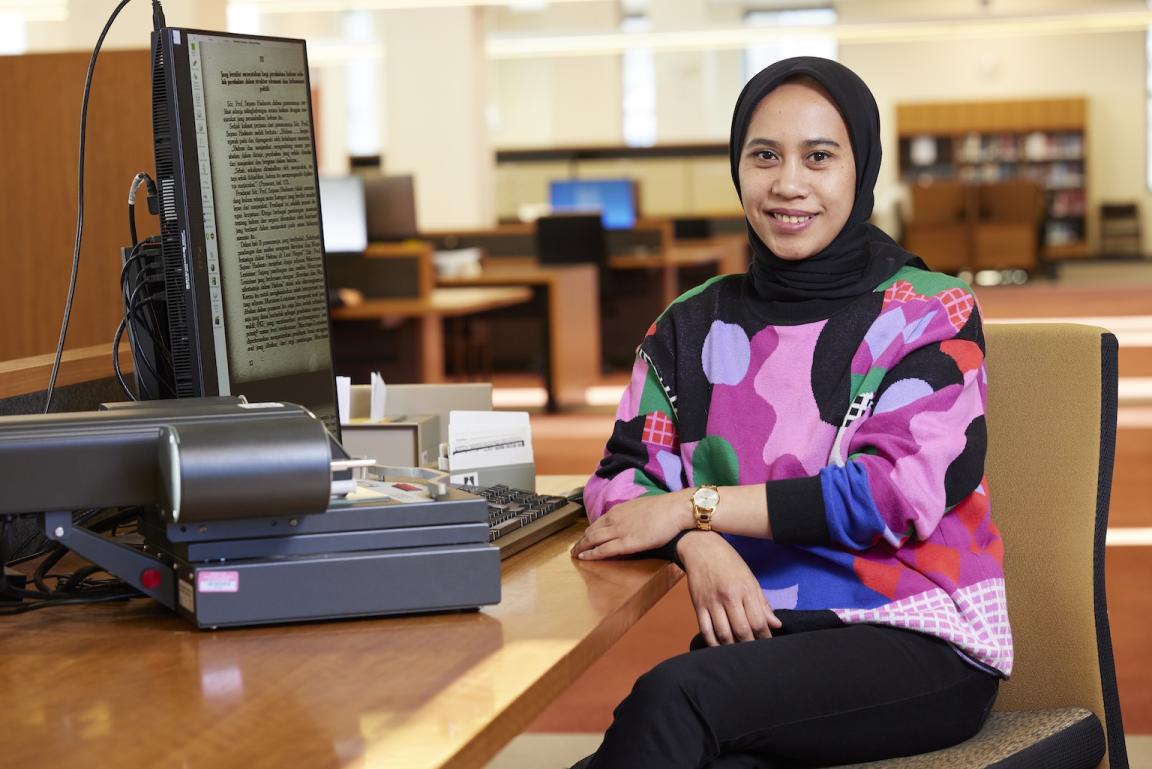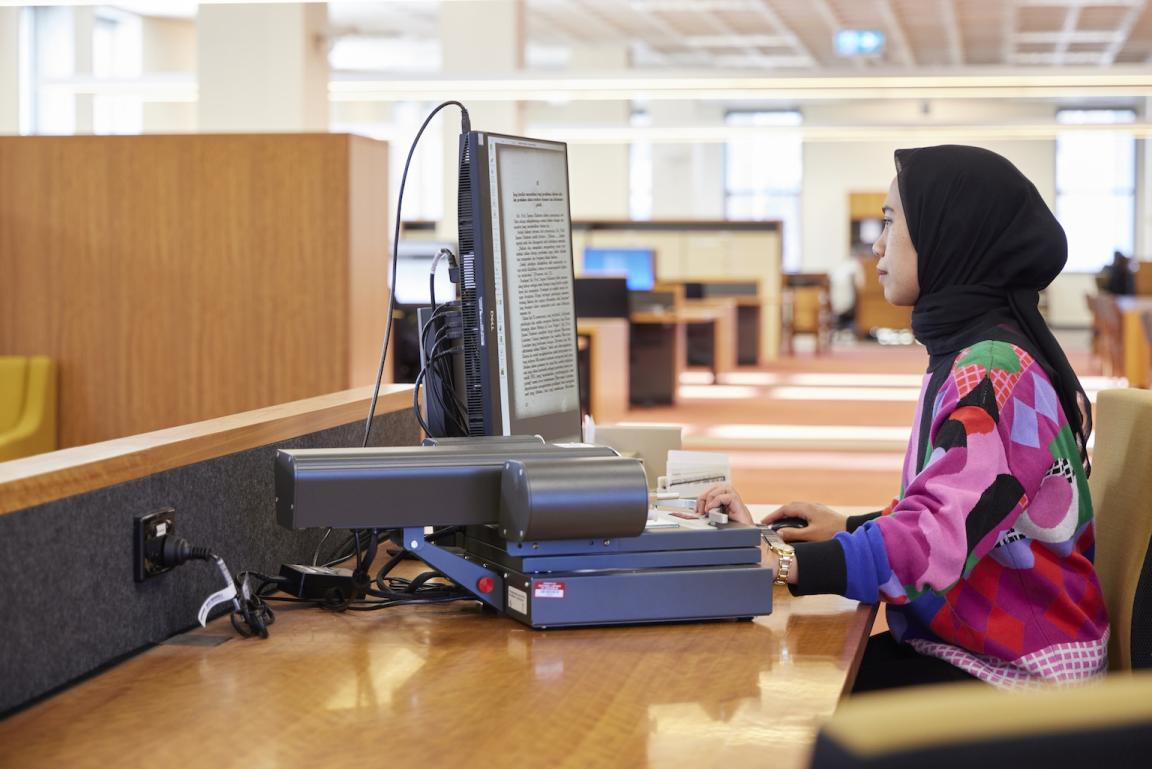Connecting law, religion and politics with the history of blasphemy in Indonesia
Spending four weeks at the Library as a recipient of a 2024 Asia Study Grant, funded by the generous support of Harold S Williams Trust, was really a precious time for me. I had the privilege to receive professional assistance from the Library staff who have been helpful to me when I was conducting my PhD research.
It is fascinating to discover the range of books, manuscripts and newspapers in the Library’s Indonesian collection. The material I used, for example, are from the crucial times of the country’s history from the Dutch and Japan colonial eras to early independence. For a researcher of Indonesian studies who is interested in investigating the historical forces that shape the country, the Library is definitely a heaven.

2024 Asia Study Grant recipient Dr Rafiqa Qurrata A'yun
2024 Asia Study Grant recipient Dr Rafiqa Qurrata A'yun
My research project is about the law and politics of blasphemy in Indonesia, a topic that has attracted researchers from various disciplines. In Indonesian studies, this topic has also intertwined with subjects such as democracy, Islam and society, illustrating the importance of an interdisciplinary approach. To contribute to this scholarship, my research project relies on the historical point of view that many legal scholars in my area rarely concern with.
As a researcher in the discipline of law, I came with an understanding that law is more than a set of rules to follow, but also power. In this context, history becomes essential not only as a way to investigate how law is created and operated in reality, but also to understand how the nature of law as a system has been shaped by historical contests over power and resources.
With history as my departure point, I found that law is never sterile from non-legal aspects. Law exists and works in a broader setting of state institutions. In blasphemy issues, I also learned how religious mobilisations related to blasphemy issues have been shaped by political conflicts, not merely a growing conservatism in society.
My favourite part of the Library collections was the newspapers published in the Japan military occupation period (1942-1945), as an important period of institutionalising religion in Indonesia, and the Indonesian collection, which includes historical and rare materials such as publications of the Communist Party of Indonesia (1953-1964). I spent hours at the Library, selecting and analysing data from the collections relevant to my research.
From these resources, I learnt how some instances from the past that perhaps were less significant or were swept under the rug and forgotten were not without meaning and connections. Instead, they sometimes provided convincing evidence to understand problems faced at the present time.
The findings of my research often brought excitement and “Eureka moments”. I found complexities of well-known high-profile figures in Indonesian history, not only in terms of their personal characters and their roles in public, that were quite different compared to mainstream understanding. In studying these figures, I also identified how they took part in the power contests that have shaped the political trajectory of the country.

2024 Asia Study Grant recipient Dr Rafiqa Qurrata A'yun
2024 Asia Study Grant recipient Dr Rafiqa Qurrata A'yun
From the day I began my residency, I found the atmosphere at the Library to be very conducive to doing research. The peace and quiet of the Library’s Main Reading Room is a luxurious setting where I can sustain concentration to write my works, and gain inspiration and ideas for my next project.
I started my research with an abundance of enquiries, and now I gathered data that help me bring a clearer picture to formulate the answer. I also had a chance to present my research project to the Library staff and colleagues at the end of my residency.
I strongly encourage researchers in the scholarship of Asian studies, particularly Indonesia studies, to enrich their research using the Library collections. More than a personal achievement, I believe this is also a great opportunity to contribute more to the research communities.
The Asia Study Grants program provided researchers and PhD students with opportunities to research our Asian language and Asia-related collections.
While the Asia Study Grants program is no longer offered by the Library, researchers and PhD students working in the field of Asian Studies are able to apply for the National Library of Australia Fellowships and National Library of Australia Scholarships programs.